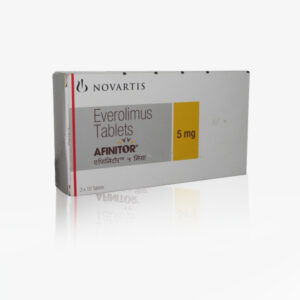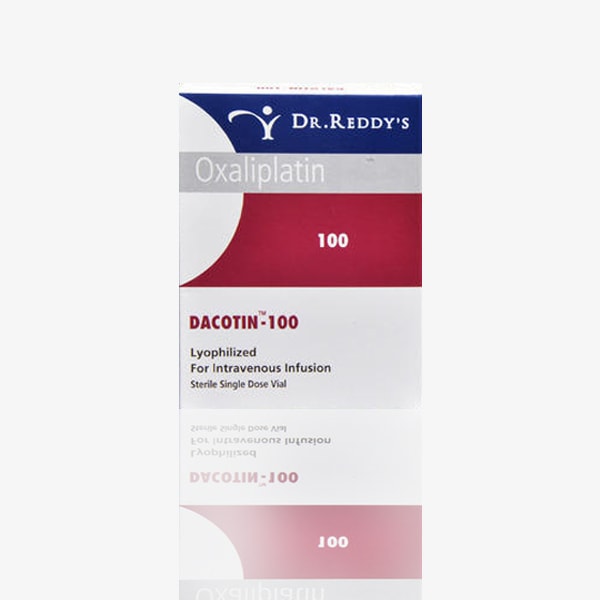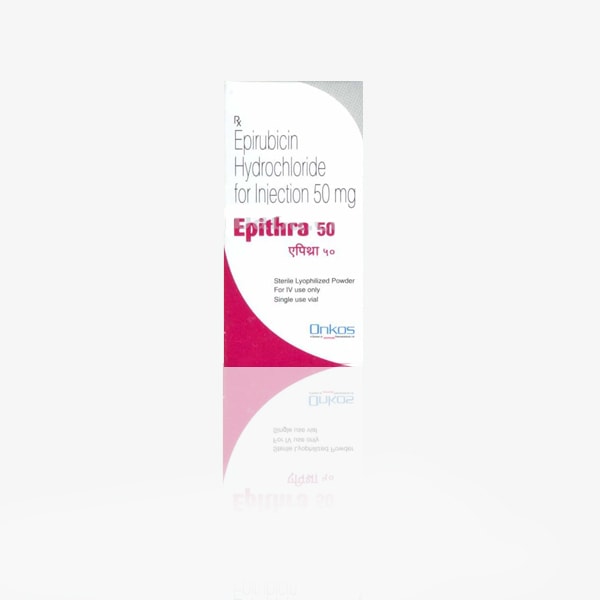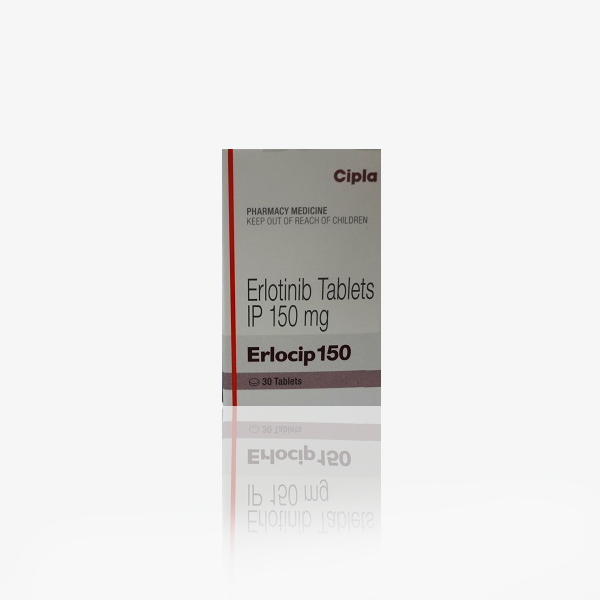

Buy Afinitor : Everolimus 5 Mg Tablet 30’S Online
$403.56
Brand Name : Afinitor
Composition : Everolimus
Manufactured by : Novartis India Ltd.
Strength : 5 mg
Form : Tablets
Packing : Pack of 30 Tablets
Prescription Required *

Buy Afinitor : Everolimus 5 Mg Tablet 30’S Online
$403.56
- Description
- Reviews (0)
Description
Afinitor is a brand name for the medication everolimus. It belongs to a class of drugs known as mammalian target of rapamycin (mTOR) inhibitors. Everolimus is used in the treatment of various cancers and certain non-cancerous conditions. Below is a general description:
Composition and Mechanism of Action:
- Active Ingredient: Everolimus is the active ingredient in Afinitor.
- mTOR Inhibitor: Everolimus inhibits the activity of the mammalian target of rapamycin (mTOR), a protein kinase involved in regulating cell growth, proliferation, and angiogenesis. By blocking mTOR, everolimus helps slow down the growth of cancer cells.
Indications:
- Advanced Renal Cell Carcinoma (Kidney Cancer): Afinitor is indicated for the treatment of advanced renal cell carcinoma (RCC) after failure of treatment with sunitinib or sorafenib.
- Advanced Hormone Receptor-Positive, HER2-Negative Breast Cancer: Afinitor, in combination with exemestane, is used for the treatment of postmenopausal women with advanced hormone receptor-positive, HER2-negative breast cancer that has progressed after treatment with letrozole or anastrozole.
- Pancreatic Neuroendocrine Tumors (PNET): Afinitor is also approved for the treatment of progressive, non-functional neuroendocrine tumors of pancreatic origin in patients with unresectable, locally advanced, or metastatic disease.
- Subependymal Giant Cell Astrocytoma (SEGA): Afinitor is indicated for the treatment of adults and pediatric patients with tuberous sclerosis complex (TSC) who have associated subependymal giant cell astrocytoma (SEGA) that requires therapeutic intervention but cannot be curatively resected.
Dosage and Administration:
- The dosage of Afinitor may vary based on the specific type of cancer being treated. It is typically taken orally in the form of tablets.
Monitoring:
- Regular monitoring by a healthcare professional, including imaging studies and blood tests, may be necessary to assess the response to treatment and manage potential side effects.
Side Effects:
- Common side effects of Afinitor may include stomatitis (mouth sores), rash, diarrhea, fatigue, and infections. Serious side effects may include lung or breathing problems, kidney failure, and metabolic disturbances.
Contraindications:
- Afinitor is generally contraindicated in individuals with a hypersensitivity to everolimus or its components.
Precautions:
- Everolimus should be used with caution in individuals with impaired liver function, and regular liver function tests may be required.
Patient Counseling:
- Patients prescribed Afinitor should be educated about its proper use, potential side effects, and the importance of regular follow-up appointments with a healthcare provider.
Pregnancy and Breastfeeding:
- Afinitor may cause harm to a developing fetus, and women of childbearing potential should use effective contraception during treatment. Breastfeeding is not recommended during Afinitor therapy.
It’s crucial to note that the information provided here is a general overview, and specific details regarding the use of Afinitor should be discussed with a healthcare professional. The medication should be used under the guidance and supervision of a qualified healthcare provider based on the individual’s medical history and specific health needs.
Be the first to review “Buy Afinitor : Everolimus 5 Mg Tablet 30’S Online” Cancel reply
Related Products
Buy Biobin : Cytarabine 1000 Mg Injection Online
Total Sales: 0
SKU: 999962
Buy Dacotin : Oxaliplatin 100 Mg Injection Online
Total Sales: 0
SKU: 925185
Buy Epithra : Epirubicin 50 Mg Injection Online
Total Sales: 0
SKU: 875239
Buy Erlocip : Erlotinib 150 Mg Tablets 30'S Online
Total Sales: 0
SKU: 691594
Buy Tarceva : Erlotinib 150 Mg Tablets 30'S Online
Total Sales: 0
SKU: 367144








Reviews
There are no reviews yet.